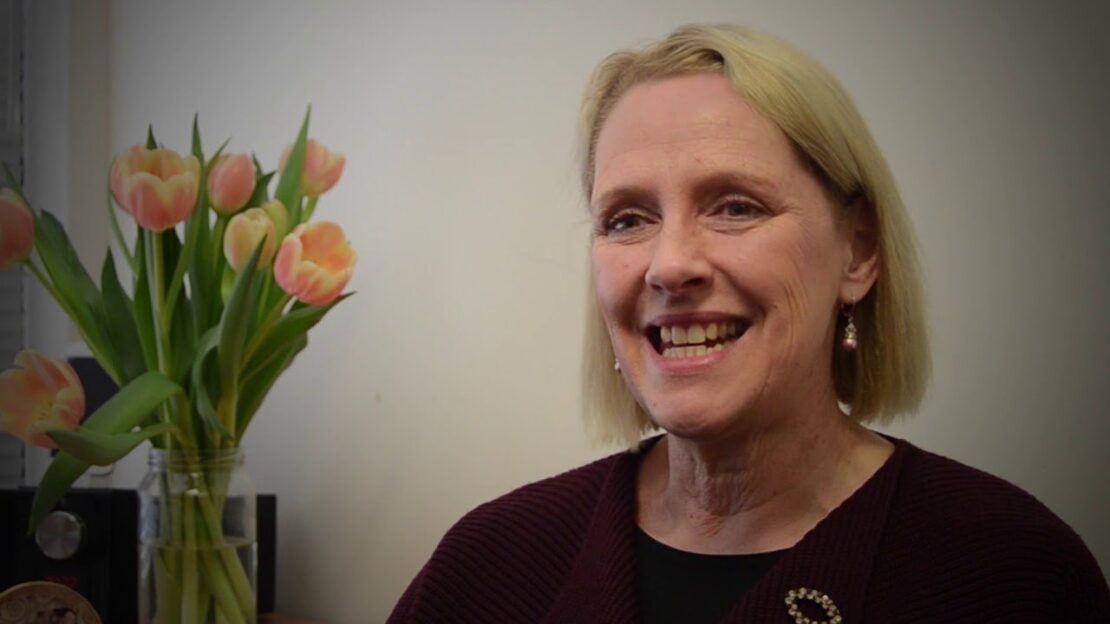The peony rose season is a short one – 6 to 8 weeks from late October. And they are one of my favourite flowers. The head of each rose is wondrous: layers of tiny, delicate petals, held up by an impossibly thin stem surrounded with shoots of green leaves. They carry a slight scent and, even though their days in a vase are numbered, I appreciate the wonder of them. They are a timely reminder to me of the blessings that surround us in the ordinariness of life.
Because at the moment, I feel at a loss. I can’t understand how the Ukraine/Russia conflict can continue. I can’t make sense of how the violence in Israel and Gaza can have exploded so quickly and with such devastation to so many people. I am shocked that fighting between the military and the paramilitary Rapid Support Forces in Sudan – a country already reeling from drought and violence – is entering the six-month mark. On a local level we read daily about violence, accidents and trauma. I am feeling worn down!
And I wonder about the effects of the ongoing call from the Pope and church leaders to pray for peace – to which people of faith are responding. Are our prayers going unanswered? It feels as though death and tragedy are all around.
On Saturday of the Thirty—Second Week in Ordinary Time, the Gospel commenced with: ‘Then Jesus told them a parable about their need to pray always and not to lose heart’ (Lk 18:1). The voice of the ages reminding us not to give up. In reflecting on this passage, Patricia Parachini, SNJM, a pastoral theologian notes:
We are encouraged to pray even when the going is tough and the path unclear. To pray is to continue to trust in the marvels God can accomplish even when we cannot see our way and are tempted to despair. We can take heart from the many martyrs of our time who never lost hope even in the midst of the most difficult circumstances’. (from Give Us This Day, p. 190)
These are painful times. The weight of the world’s troubles may bring for some of us an acute sensitivity to the thinness of the veil between life and death. Our hearts are wearied by the shocking stories of the violence our brothers and sisters are experiencing and inflicting upon each other. The ordinariness of life appears to have tilted towards destruction.
Leigh Sales in ‘Any Ordinary Day’ interviews a range of people who have experienced unimaginable tragedy and loss. In light of their stories, she uses research into fear, loss and grief to try and make sense of how people go on after deep and inexplicable tragedy. One of her interviewees, Juliet, when asked what she hoped people would learn from her story says:
That in pain, there’s also joy. You can’t be in the presence of just one thought, that life is good, or life is bad, or life is sad. There’s all these things. And there are so many good people in the world, actually so much kindness. It’s everywhere. (p.149)
Over time, most of us experience deep personal tragedy. We will all experience the death of friends and family and I feel this keenly in November – for me it is a memory month. This month of remembrance brings this wonderful invitation to remember and to pray for our now silent friends. And in a small way, this reminder gives me hope. There is always prayer. This unique relationship that we can all build with God and Jesus that connects us to the depths of our past, helps us to make sense of the present and carries our hopes for the future. A reminder that our saints and angels are always gathered around. I feel a particular connection with my parents during this month. I like the ritual of visiting their grave, and at night I light a candle for them – and for all who are suffering and who are near to death. In my own way, my little weary hearted prayers open my eyes to hope.
This is the gift of November, I think: an invitation to remember that God is a God of presence, blessing and goodness. That it is possible for the world in which God is present to hold the good and the bad. That we can draw close to God and allow God to enter into our weary hearts. We can draw inspiration from the goodness of those who have gone before us. In thinking about our dead, the words of Karl Rahner may help. He writes that the dead: have gone to be with God, the God of Abraham and Isaac and Jacob, not the God of the dead but of the living (Karl Rahner, Encounters with Silence [St Augustine’s Press, 1999]).
So, for those of us for whom November is a sacred time – let us look upon our troubled world with love. Let us remember our now silent friends – those women and men who went before us marked with the sign of faith, who blessed us by their presence in the ordinariness of our lives.
And let us not lose hope – our God is a God of blessing and promise. All will eventually be well. War will cease. People will be cared for. Trauma will heal.
And I know this because my peony roses tell me.
By: Cathy Jenkins
Published: 19 November 2023




Comments
Laura Facci
Thank you Kathy for sharing your innermost thoughts about the state of the world. I too feel very weary when I learn of all the pain & sorrows many of our brothers & sisters face on a daily basis in areas of the world that are ravaged by war.
But thank you also for reminding me that so much goodness & beauty also exist all around us, if we but look more closely.
Add Comment